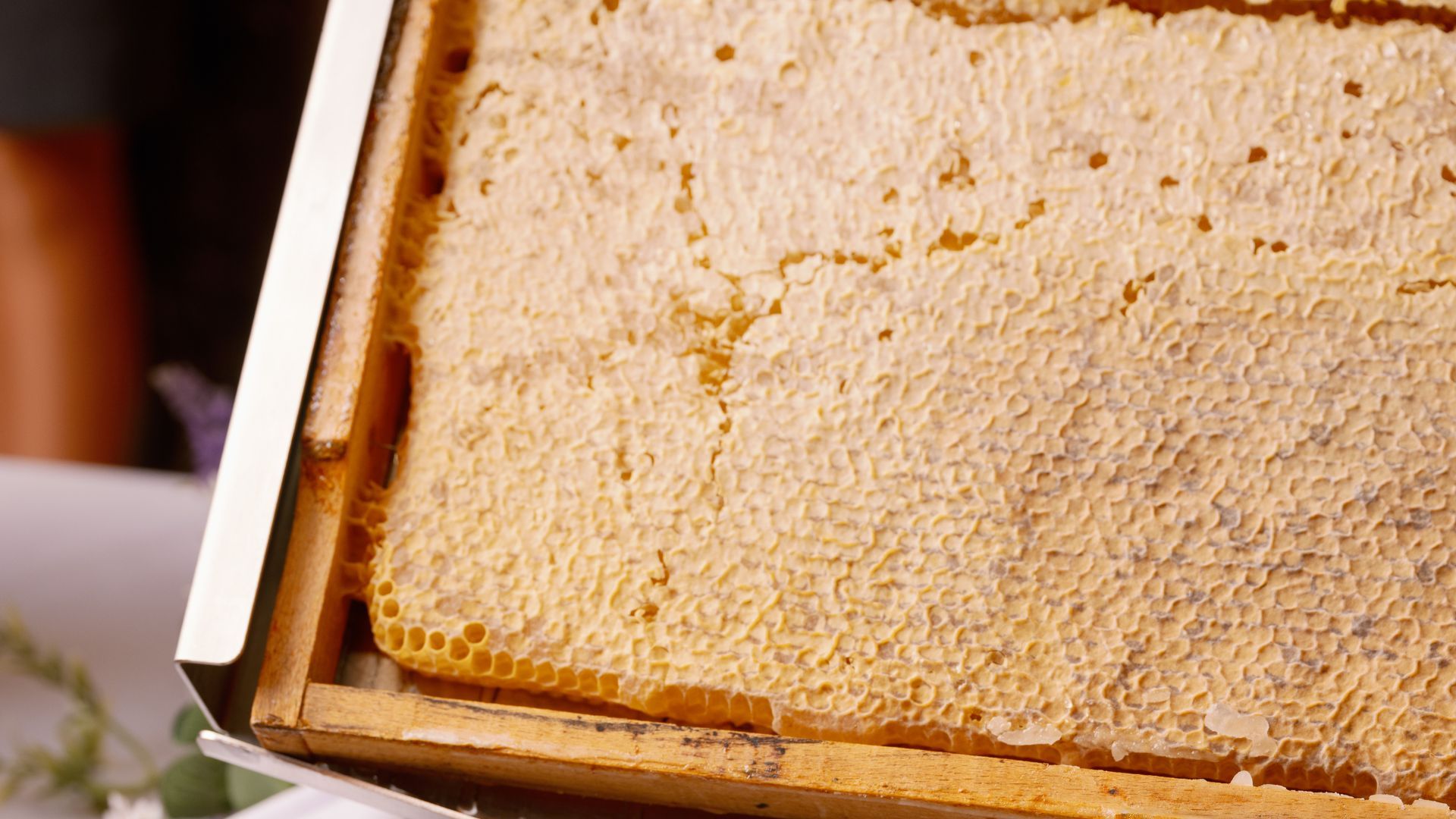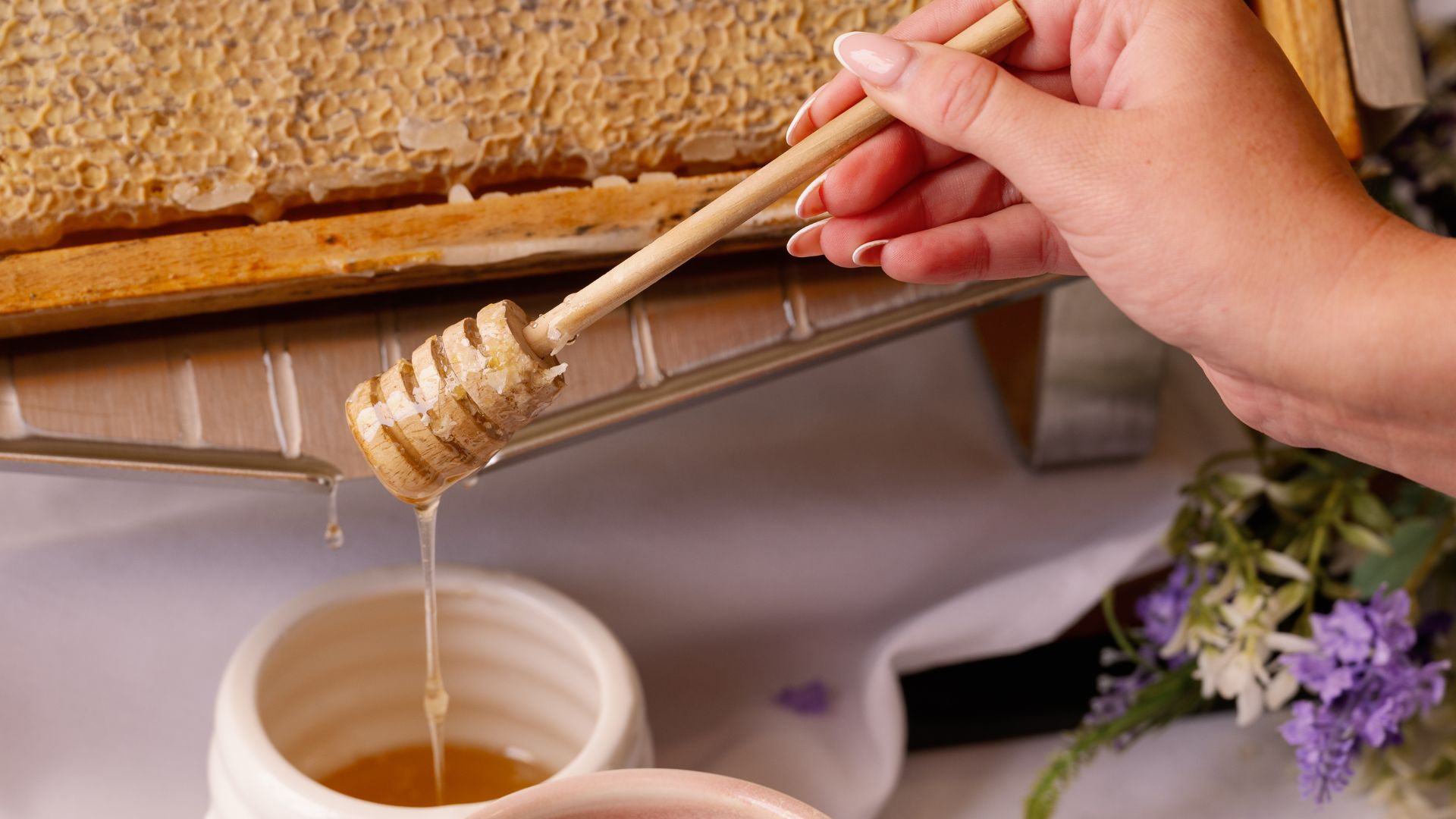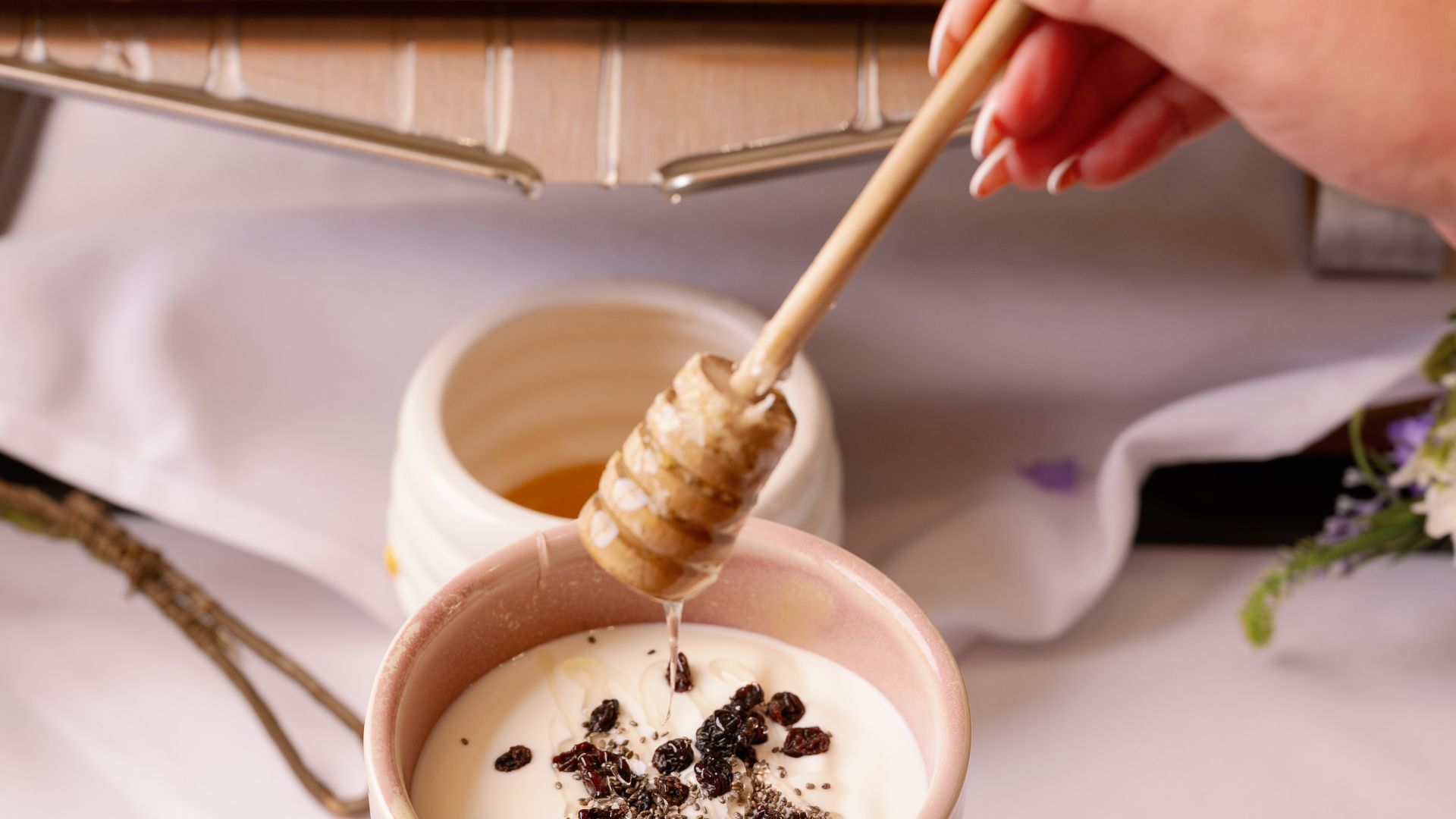Here at The Fitzwilliam, we are proud to source natural raw honey to offer our guests a sustainable, delicious alternative to processed sugars in our restaurant. Our honeycomb supplier is Michael Young MBE, Founder and Chairman of the Institute of Northern Ireland Beekeepers (INIB). Michael is a leading voice in bee conservation and education, and his work promotes sustainable, local beekeeping and broader conservation efforts across Northern Ireland. Our support of this work helps to protect bee populations, which are vital to the balance and health of our ecosystems.
The waxy hexagon container is the purest form of raw honey, and the natural state you would find honey in a beehive. Try spreading honeycomb on fresh pastries, pancakes or waffles. It’s also delicious with a charcuterie board of bread, meat, fruit, and cheese. You can melt it into a warm bowl of porridge or granola. Or try a little spoonful on its own for a guilt-free sweet treat and pick-me-up.
The Buzz Behind Bees and Honey
At first glance, bees may seem like just another part of the natural world. But these small pollinators are powerhouse contributors to both ecosystem health and sustainable living, and they connect directly with our hotel’s commitment to environmental responsibility.
Did you know?
The Bee Gees: Honeybees have a dance move called the ‘waggle dance’. It’s their clever way of communicating between themselves, to tell their nestmates where to go to find the best source of food.
Honey doesn't spoil due to its unique composition: low water content, high sugar concentration, and natural acidity, which create an inhospitable environment for bacteria and other microorganisms. These factors, combined with the natural hydrogen peroxide produced by bees, make honey a natural preservative.
Honey is the only food made by an insect that humans eat.
A Single Teaspoon of Honey = A Bee’s Lifetime: One bee makes just 1/12th of a teaspoon of honey in its lifetime, so every spoonful is incredibly precious.
Through pollination, bees help to produce up to a third of our food supply. Bees pollinate more than 70 of the 100 crop species that feed 90% of the world. Without bees, we’d lose much of the fresh produce we take for granted, including almonds, apples, coffee, and even chocolate!
A Single Bee Can Visit 5,000 Flowers in One Day. This tireless work ethic enables cross-pollination, supports biodiversity, and allows entire ecosystems to thrive, from wildflowers to forests.
Honey is full of vitamins and essential minerals, antioxidants, and amino acids. It is a mixture of simple sugars glucose and fructose. Eating honey is a natural way to get an energy boost.
*Some of the information on this page is from the National Wildlife Federation and World Wildlife Federation.
Sign up to our mailing list
Sign up to our mailing list and be the first to hear about special offers, new dining experiences and exclusive promotions from The Fitzwilliam Hotel.






